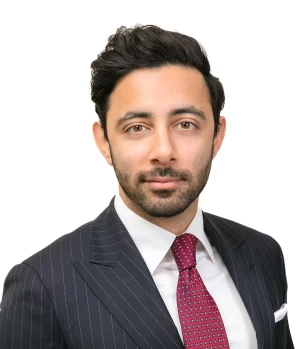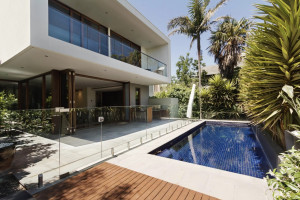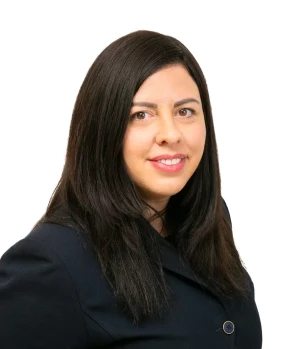Entering into commercial lease is often a long-term commitment which can have considerable financial implications on both you and your business. This article provides a guide on what a commercial lease is, and some of the key things you should always take into consideration when signing a commercial lease. This is a non-exhaustive list, and you should always speak to a specialist commercial property lease lawyer before signing a lease.
What is a commercial lease?
A commercial lease is a lease that relates to a premises that is being used for business activities. This could be a lease of office space, a lease of industrial warehouse space, or any other types of business property.
What is the difference between a commercial lease and a retail lease?
In New South Wales, there is a distinction between a commercial lease and a retail lease, where the latter refers to a lease that is being used for a purpose that meets the criteria set out in the Retail Leases Act 1994 (NSW). This article addresses commercial lease, which should not be confused with Retail Leases.
How do commercial leases work?
Commercial leases will typically be negotiated directly between the landlord and the tenant, or sometimes the parties might engage a real estate agent or tenant representative to negotiate the commercial terms on their behalf. This might include valuations of what might be considered fair market rent, whether or not the rent includes outgoings, as well as what other terms and conditions are ideal.
Common commercial property lease terms
Most commercial property leases will contain the following terms:
Term. This is the length of the commercial lease and might include the initial term of the lease, but also any option to renew the commercial lease.
Rent. The amount of rent payable on the commercial lease and when it needs to be paid.
Outgoings. Who is responsible for payment of different outgoings. This can include things like water rates, council rates, strata contributions, insurance premiums, and land tax.
Security. Does the tenant have to provide the landlord with security? It is common to see things such as a security deposit, bank guarantee, or personal guarantee.
Make good obligations. What needs to happen at the end of the lease, such as removal of fittings and fixtures, or obligations to repaint or restore the premises to its original condition.
Any other obligations of the parties, such as fit out requirements.
How long are commercial leases?
The length of a commercial lease is dependent on what is negotiated by the parties. It is common to see lease periods for 3-5 years, with additional option periods available to the tenant.
Sometimes lease arrangements can last for 10-15 years or more, after taking into consideration the option periods granted to a tenant.
Due to the lease lasting so long, it is essential to speak to a specialist commercial leasing lawyer to ensure that the terms are correct from the outset, as you may be stuck with those terms for a very long time.
What is a commercial lease option to renew?
The parties to a commercial lease will agree to the length of the lease term. Many leases will also include options for the tenant to extend the term for a longer period. This is usually to the benefit of the tenant, who has no obligation to exercise the option, however is able to do so if they want to stay in the premises. If a tenant validly exercises an option to renew a commercial lease, then the landlord must continue to allow them to continue to lease the property.
How much is a commercial lease bond?
How much of a bond is required for a commercial lease is a matter for negotiation between the lessor and lessee.
It is common for a landlord to get an understanding of the financial circumstances and the business experience of a potential tenant before agreeing to lease a commercial property to them. This is because a commercial lease is a long term financial commitment, and it is important that the tenant is able to meet that commitment.
In circumstances where a landlord is unsure whether a tenant will be able to meet its obligations under the commercial lease, it is common to see higher amounts of security to be provided, ranging from 4-6 months worth of rent.
On the other end of the spectrum, it is also possible to see security of 1-3 months rent being provided.
Security under a commercial lease is often provided by way of a cash deposit, known as a security deposit, or a bank guarantee.
What happens when a commercial lease expires?
The terms of the lease agreement will determine what happens at the end of a commercial lease. Sometimes a tenant will be able to continue to stay in the premises, often on a month-to-month basis, known as ‘holding over’. Other times, the tenant will need to vacate the premises.
It is common to see a requirement for a tenant to ‘make good’ the premises at the end of the lease. This is often done by restoring the premises to a base shell by removing the tenant’s fit out, or by restoring the premises to the condition it was in at the start of the lease.
The lease might also include certain requirements to redecorate the premises, such as by repainting or reflooring the premises.
What is the role of a commercial lease lawyer?
A commercial lease solicitor acting for a landlord will typically be responsible for preparing the commercial lease agreement.
A commercial lease solicitor acting for a tenant will usually review the document that has been prepared by the landlord’s leasing lawyer, and will provide advice to the tenant on their obligations.
Both sets of commercial real estate lease lawyers will ensure that the commercial terms are incorporated into the final lease agreement, and will often be required to negotiate the finer details of the legal agreement on behalf of their clients.
What is the cost of a commercial lease lawyer?
The cost will usually vary depending on the length and complexity of the lease documentation, the amount of negotiation that might be required, the commercial terms (such as the rent payable under the lease), and the seniority of the property lawyer that is representing you.
At Thornton + King our commercial real estate lawyers have deep expertise in commercial lease transactions and are able to provide fixed price quotations to act on the preparation or review of commercial lease documents.
Who pays legal fees for commercial leases?
While each party will typically pay their own legal costs on a commercial lease transaction, sometimes the parties will negotiate into the commercial terms an arrangement where the lessee will reimburse the lessor for the legal costs associated with preparation and negotiation of the commercial lease.
What is a commercial lease fit-out?
Depending on the premises being leased, and the use that is intended for that premises, the parties may need to alter and fit out the premises. For example, often commercial premises may be provided as a ‘base shell’ and it will be the tenant’s responsibility to reconfigure it in a way that is acceptable to their proposed use.
The Lease Will Contain Provisions such as:
What works can be done to the premises;
When those works can be done;
Who is responsible for doing those works;
What approvals might be required (such as the from the landlord or the council);
Who is responsible for getting those approvals.
Every premises and every lease is unique, and its crucial to undertake deep due diligence on both the premises and the lease documentation prior to signing a lease. At Thornton + King we have numerous Accredited Specialists in Property Law. Our expert commercial leasing lawyers have decades of experience preparing, reviewing, and negotiating commercial leases. If you’d like to work with us, give us a call or submit an enquiry now.












